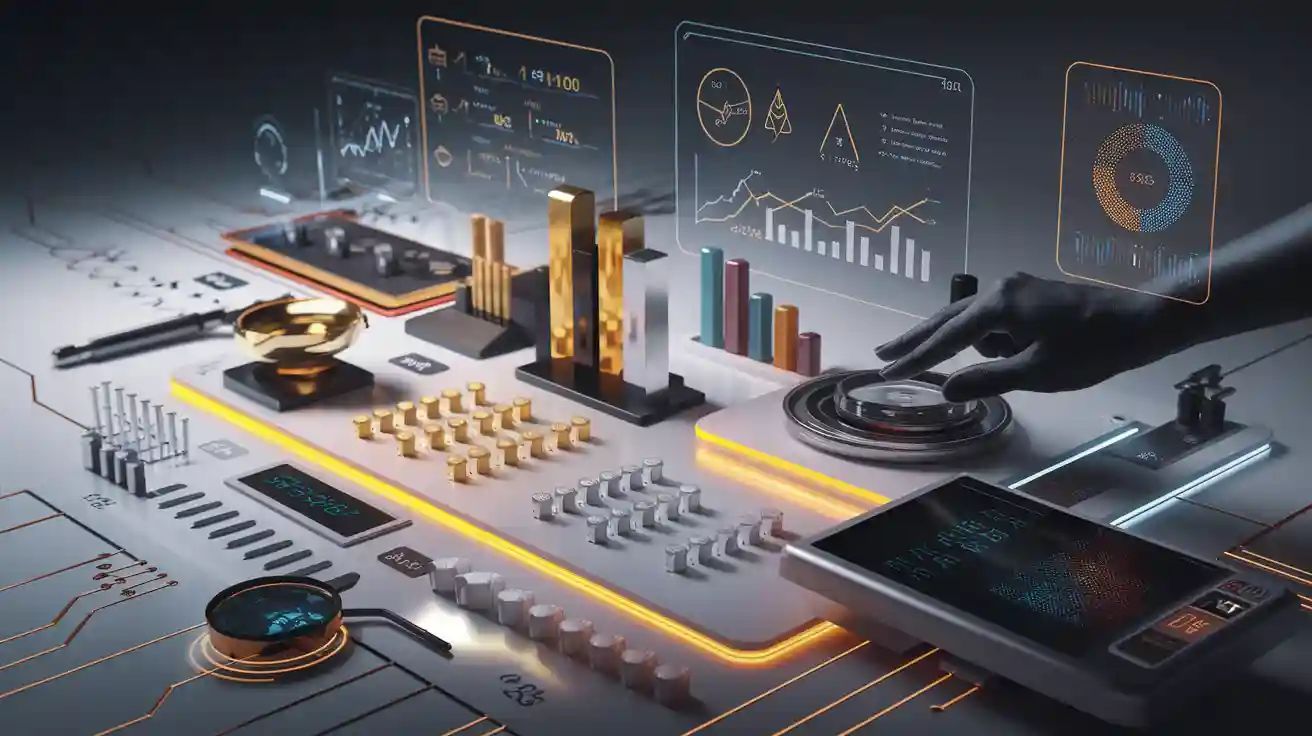
You often hear about precious metals like gold, Silber, oder Platin. These metals are special because they do not rust. They are also worth a lot of money. When you mix precious metals with other things, you get precious metal alloys. To find out what is in your metal, you need a wertvoll Metall-Analysator. This tool uses different analyzers and special tests to check how pure the metal is. It can also find fake metals and make sure the value is right. Good analysis helps you trust what you buy, verkaufen, or use.
Key Takeaways
Precious metals like Gold, Silber, and platinum do not rust. They are worth a lot of money. This makes them important for jewelry, Investition, und Industrie.
When you mix precious metals with other metals, you get alloys. Alloys are stronger and last longer. They can also have special uses for different things.
Precious metals help protect your money. They keep their value when the market changes or prices go up. People also use them in electronics and medical tools.
Good analyzers help find fake metals. They check if the metal is pure. They also make sure you get a fair price when you buy or sell precious metals.
Edelmetallübersicht
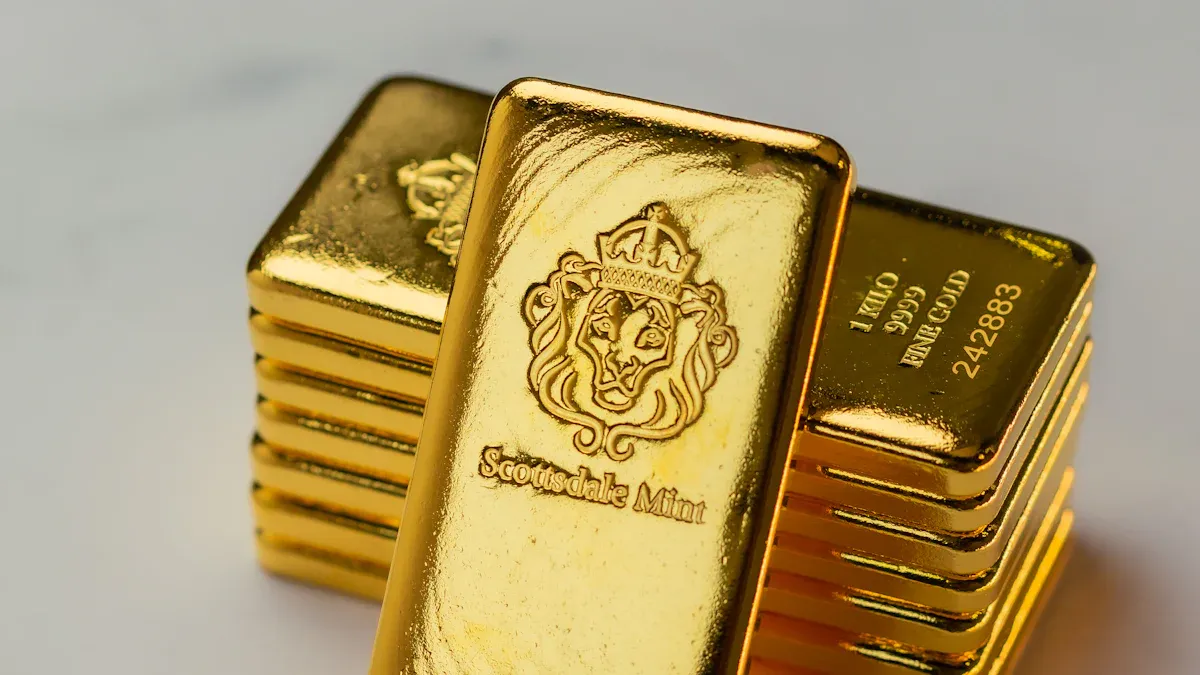
Key Traits
You can tell precious metals by their special features. These metals do not rust or break down, so they last a long time. They look shiny and are worth a lot in many places. Scientists use special tools to find out how much of each metal is there, even if it is a tiny amount. The table below shows how exact these tests can be:
Edelmetall | Präzision | |
|---|---|---|
Gold | ~0.1 | <10% |
Silber | ~0.1 | <10% |
Platin | Higher than Au/Ag | <10% |
Rhodium | Intermediate | <10% |
Palladium | Intermediate | <10% |
Iridium | Intermediate | <10% |
Ruthenium | Up to ~600 | <10% |
Osmium | Up to ~600 | <10% |
These metals are often found in very small amounts. Scientists use careful methods to find them, which helps make sure the results are right.
Gold and Silver
Gold and silver are the most famous precious metals. You can find them in jewelry, Münzen, and electronics. Gold does not lose its shine or color over time. Silver lets electricity flow better than any other metal, so it is used in electronics and factories. Studies show gold nanoparticles are usually smaller than silver ones when made the same way. Gold particles can get bigger as time goes on, but silver particles usually stay the same size. This helps explain why gold and silver act differently in products.
A study that lasted 52 Jahre showed gold and silver prices change with money values. When the dollar or euro changes, the prices of these metals also change. This is why many people watch the market closely.
Other Precious Metals
There are other precious metals besides gold and silver, like platinum, Palladium, Rhodium, iridium, ruthenium, and osmium. Each one has its own special uses. Zum Beispiel, platinum does not get damaged by heat or acids, so it is used in jewelry and medical tools. Palladium can take in hydrogen, so it is good for dental work and storing hydrogen. The table below shows some of these metals and what makes them special:
Metal | Unique Properties | Specialized Applications | |
|---|---|---|---|
Silber | 10.5 | High electrical conductivity, corrosion resistance | Electronics, Schmuck |
Iridium | 22.6 | Extremely high density, corrosion resistance | Scientific instruments, high-temperature uses |
Platin | ~21.4 | High resistance to heat and acids | Schmuck, scientific research, medical instruments |
Palladium | ~12.0 | Extraordinary hydrogen absorption capacity | Jewelry substitute, dental products, hydrogen storage |
Rhodium | ~12.4 | Exceptional heat resistance, light reflectivity | Aircraft turbine engine components, mirrors, flashlights |
Ruthenium | ~12.4 | Corrosion resistance, hardness | Electronics, chemical industry |
Osmium | ~22.6 | Very high density, hardness | Specialized alloys, scientific applications |
You can also see how heavy these metals are in the chart below:
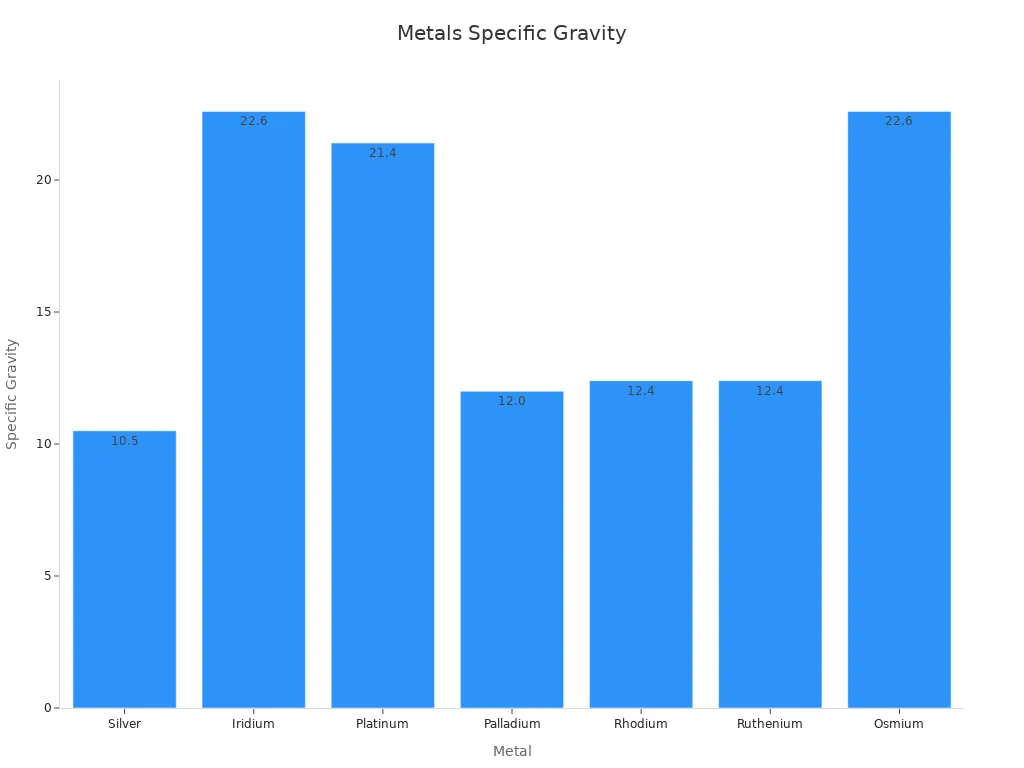
These special features make precious metals important for many products and jobs.
Precious Metal Alloys
Alloy Basics
You often see precious metals mixed with other elements to create alloys. An alloy forms when you combine two or more metals in different amounts. This process changes how the metal acts. Zum Beispiel, you can mix gold with copper or silver to make it stronger. Scientists use special methods to control the mix. They look at how fast each metal joins in and how much of each is present. The final precious metal content depends on these steps. Even small changes in the mix can affect how the metal melts or how it handles heat. You can see these effects during casting, where the right mix helps prevent cracks.
Tipp: The way you mix metals can change how they behave. Careful control during alloy creation leads to better results.
Why Alloys Matter
Alloys play a big role in making precious metals useful for more jobs. When you add other elements, you can make the metal harder, stronger, or more resistant to rust. Studies show that adding small amounts of elements like chromium or molybdenum can greatly improve corrosion resistance. Zum Beispiel, a high-entropy alloy made from gold, Kupfer, Nickel, Palladium, and platinum reached a yield strength of 820 MPa, which increased to 1170 MPa after more work. This means the metal can handle more force without breaking. You also see that thousands of alloy types exist to meet different needs. These changes help with recycling and make sure the metal can be used again.
Manganese removes harmful sulfur.
Silicon helps clean the metal during making.
Gold alloys are used in electronics because they resist corrosion and conduct electricity well.
Common Compositions
You find many common mixes of precious metals in nature and industry. One example is electrum, a natural alloy of gold and silver. Electrum usually has between 50% Und 95% gold by weight, with most samples around 92% Gold concentration. This range shows how precious metal content can change based on where you find it or how you make it. In jewelry, you often see gold mixed with copper or silver to make it harder and more durable. Each mix gives the metal new properties, making it fit for different uses. When you do testing, you check the exact mix to know the value and use of the metal.
Legierungsname | Main Metals | Typical Precious Metal Content (%) |
|---|---|---|
Electrum | Gold, Silber | 50–95 (Gold) |
Sterling | Silber, Kupfer | 92.5 (Silber) |
Weißgold | Gold, Nickel/Zinc | 37.5–75 (Gold) |
Precious Metal Analyzer Methods
RFA Analysators
Sie können verwenden xrf analyzers to quickly check precious metals. These analyzers use X-rays to see what elements are in your sample. You do not have to cut or damage the metal. This means the test does not hurt your jewelry or coins. Xrf analyzers are great for checking many types of metal. You just put the sample in, press a button, and get results fast. People like xrf analyzers because they are quick and accurate.
Xrf analyzers, like the VRAY XRF analyzer, are small and easy to carry. You can bring them to stores, Minen, or recycling places. You do not need to send samples to a lab. The analyzer gives you answers right away. You can test for gold, Silber, Platin, and more at the same time. This makes testing simple and saves time.
Notiz: Xrf analyzers do not harm your items. You can test valuable things safely.
Xrf analyzers work well and do not cost too much. You do not need a lot of training to use them. The analyzer can check over 20 Elemente gleichzeitig. You get results that are almost as good as lab tests. The XRF analyzer is popular because it is reliable and gives exact results.
Here is a table that shows why xrf analyzers are helpful:
Besonderheit | Nutzen |
|---|---|
Tragbarkeit | Sie können es überall verwenden, even outside |
Nondestructive | Testing does not hurt your sample |
Sofortige Ergebnisse | You get answers in seconds |
Multi-element analysis | Checks for many elements at once |
Cost-effective | Costs less than many lab analyzers |
High performance | Gives accurate purity and high precision |
You can use xrf analyzers for many kinds of precious metal tests. They help you find fake metals, check purity, and know the value. Der Vray xrf analyzer and others make testing easy for everyone.
Other Methods
There are other ways to test precious metals besides xrf analyzers. Some analyzers use optical emission spectrometry, or OES. OES sends a spark through the metal and reads the light. This method gives you a lot of detail and works for many metals. The VRAY XRF analyzer is not the only good tool, but it is very easy to use.
Some analyzers use inductively coupled plasma, or ICP, for testing. This method can find very tiny amounts of precious metals. Sie können verwenden ICP-AES or ICP-MS analyzers for very good results. These analyzers need more work to get the sample ready, but they are very accurate. You can trust the results for purity and precision.
You may also see gravimetric titration and other chemical tests. These methods work well for checking purity and what is in the metal. Studies show gravimetric titration can recover almost all the metal, with very little error. This means you get very good results. The VRAY XRF analyzer and other new analyzers make testing faster and easier, but old methods are still used in labs.
Here is a table comparing some common analyzer methods:
Verfahren | Accuracy/Precision | Nondestructive | Geschwindigkeit | Sample Prep Needed |
|---|---|---|---|---|
RFA-Analysatoren | Hoch, schnell, Tragbar | Ja | Sekunden | NEIN |
OES Analyzers | Hoch, detailed | NEIN | Minuten | Ja |
ICP-AES/ICP-MS Analyzers | Sehr hoch, ultra-trace | NEIN | Minuten | Ja |
Gravimetric Titration | Sehr hoch, lab standard | NEIN | Std | Ja |
You can see that xrf analyzers are fast, sicher, and work well. Other analyzers give more detail or find smaller amounts, but they take longer and need more steps.
Tipp: Pick a precious metal analyzer that fits your needs. If you want fast, sichere Tests, use xrf analyzers like the vanta gx analyzer. For lab-level accuracy, try ICP or titration methods.
No matter which analyzer you pick, modern analyzers give you good results. The VRAY XRF analyzer and other top analyzers help you find fake metals, check what is inside, and protect your money.
Applications of Precious Metals
Schmuck
Precious metals are used a lot in jewelry. People like them because they are shiny and last a long time. These metals make rings and necklaces look nice. Jewelry analysis helps you know if your jewelry is real. It also tells you how much it is worth. In 2023, the world jewelry market was $353.26 Milliarde. Experts think it will grow to $482.22 Milliarden von 2030. Asia-Pacific sells the most jewelry, making almost 60% of all sales. India and China buy lots of gold for weddings and special days. North America is growing fast in jewelry sales. More people there want luxury and custom pieces. Buyers and sellers use jewelry analysis to check quality and value.
Metric/Aspect | Data/Insight |
|---|---|
Global Jewelry Market Size 2023 | USD 353.26 Milliarde |
Projected Market Size 2030 | USD 482.22 Milliarde |
Asia-Pacific Market Share 2023 | 59.9% |
Bridal Jewelry Market Share India | 50-55% of gold jewelry market |
Key Materials | Gold, Platin, Diamond |
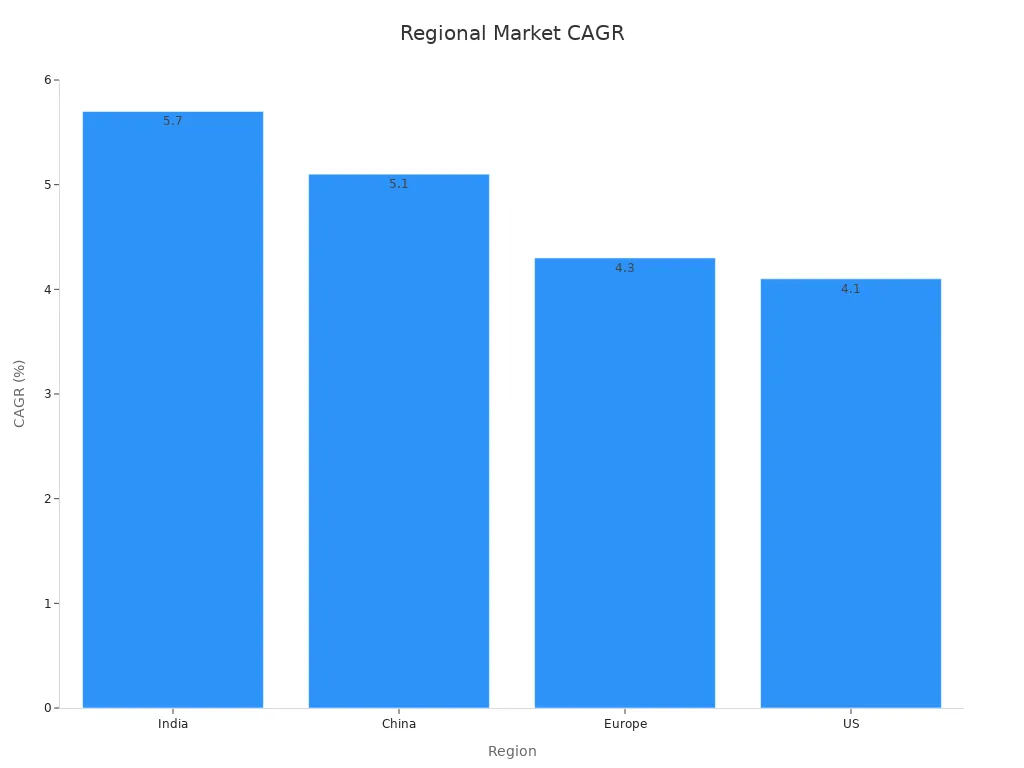
Investition
People buy precious metals to keep their money safe. These metals help protect savings from losing value. When markets go down, precious metals usually keep their worth. They help balance your investments and lower your risk. In hard times, more people buy metals like gold. Gold is known as a safe place for money. It can stop you from losing too much when stocks fall. Precious metals also help with inflation. They do not depend on banks or companies. This means you do not have to worry about default risk. Experts say adding metals to your investments makes them safer.
Edelmetalle help protect against inflation.
They make your investments less risky.
Metals often keep or gain value during tough times.
Industry
Precious metals are used in many things you use every day. Electronics, cars, and medical tools all need these metals. Factories use them because they carry electricity well and do not rust. The need for precious metals in industry keeps going up. Reports show electronics and factories use the most metals now. Silver use in solar panels went up by 30%. Platinum group metals are important for car parts and clean energy. High prices in 2024 show industries really need these metals. Jewelry analysis also helps factories check metal quality. You can find precious metals in computer chips and airplane engines.
FAQ
What is the difference between a precious metal and a precious metal alloy?
A precious metal is a pure element like gold or silver. A precious metal alloy is a mix of a precious metal with other metals. Alloys change the strength, Farbe, or use of the metal.
Woher wissen Sie, ob Ihr Gold echt ist??
You can use a precious metal analyzer, like an XRF device, to check your gold. This tool tells you the purity and if your gold is real or fake. You do not need to damage your jewelry.
Why do jewelers mix metals?
Jewelers mix metals to make jewelry stronger, harder, or a different color. Pure gold is soft. Mixing it with copper or silver helps your jewelry last longer and look better.
Can you test precious metals at home?
You can use portable analyzers to test metals at home. Some devices are easy to use and give fast results. Always follow the instructions for safety and accuracy.
What is the safest way to check metal purity?
The safest way is to use a non-destructive analyzer, like an XRF device. You do not need to cut or scratch your item. This method keeps your jewelry or coins safe while giving you accurate results.
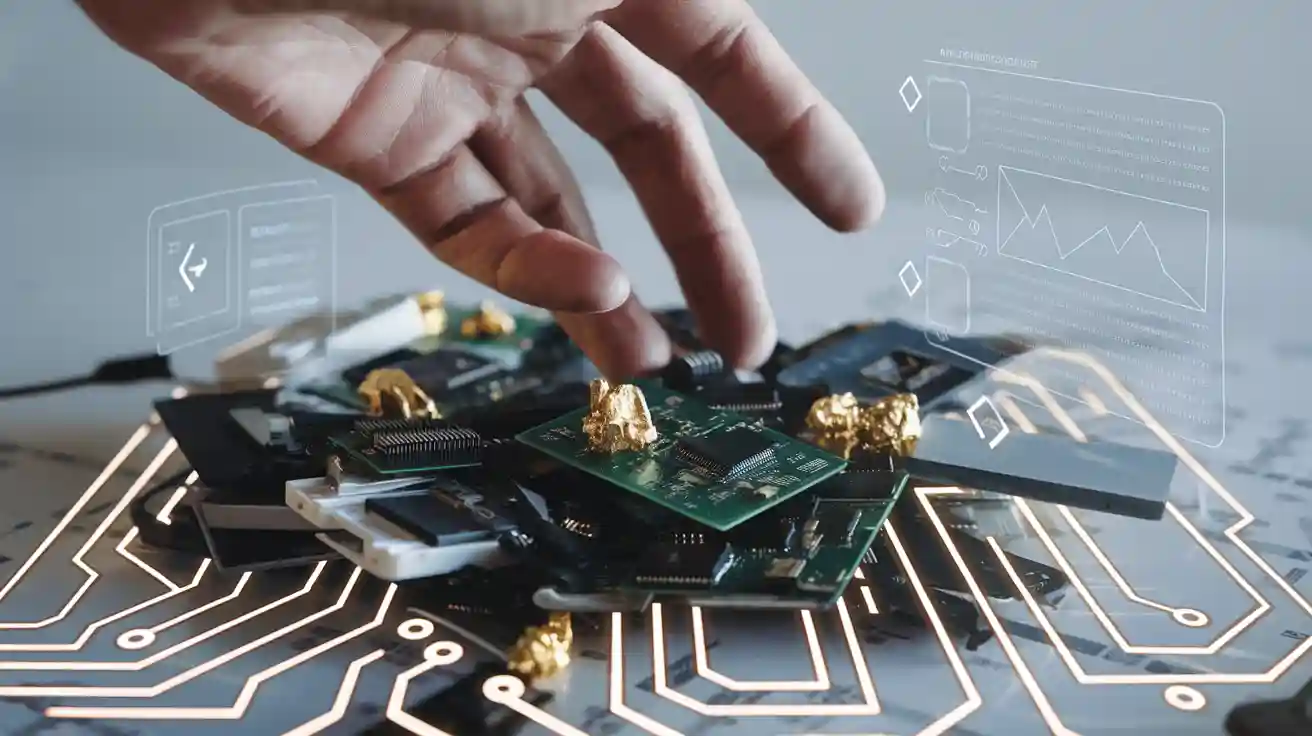
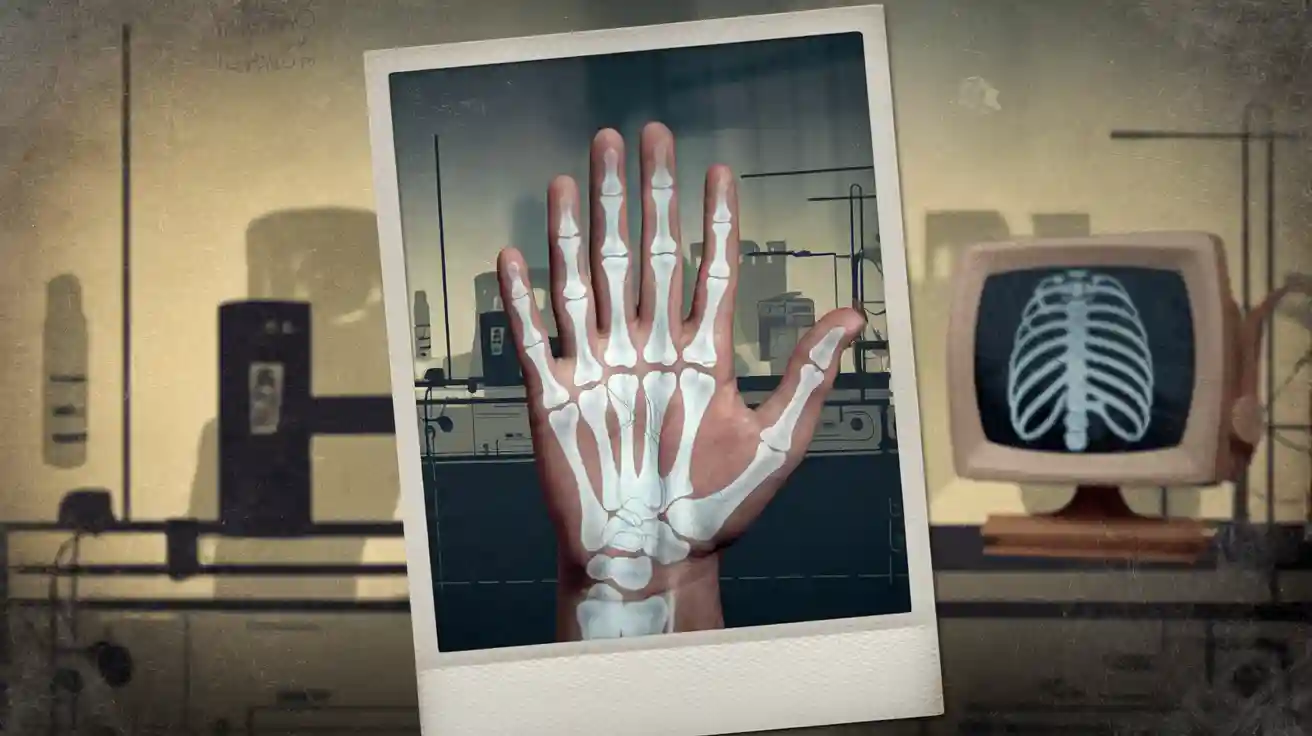
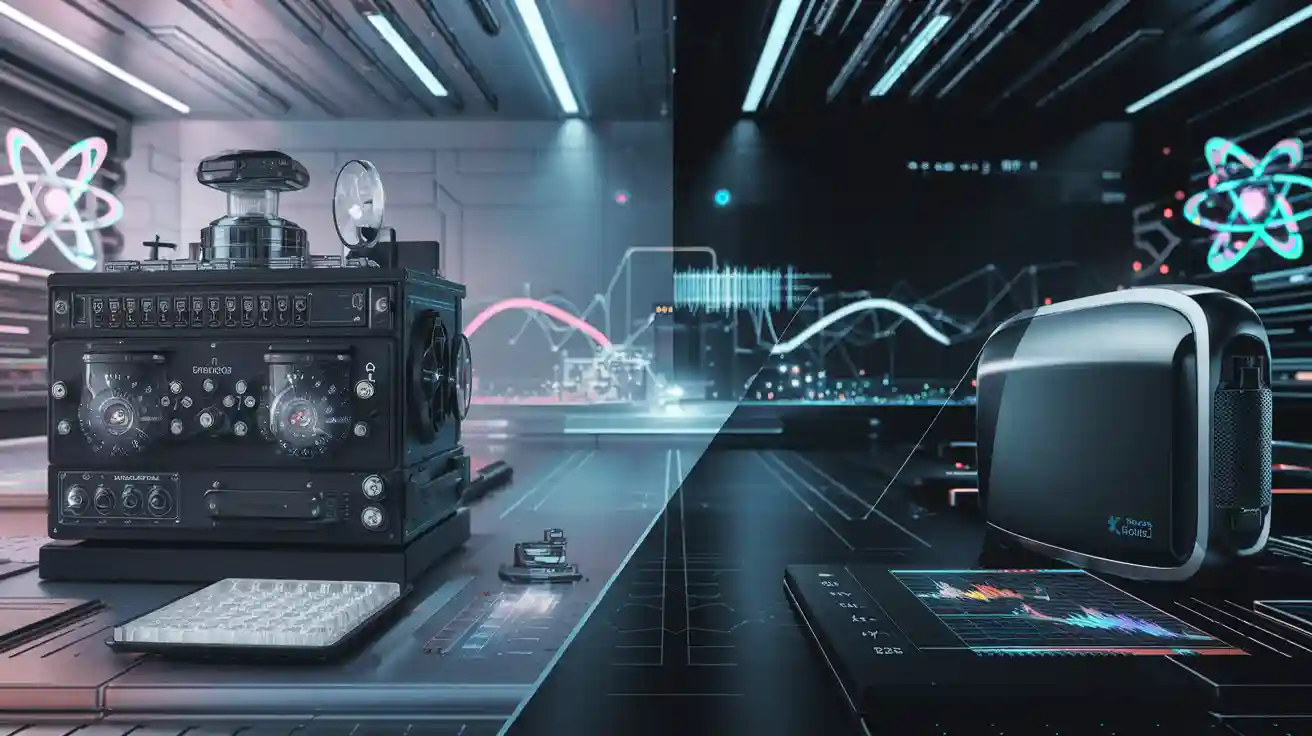
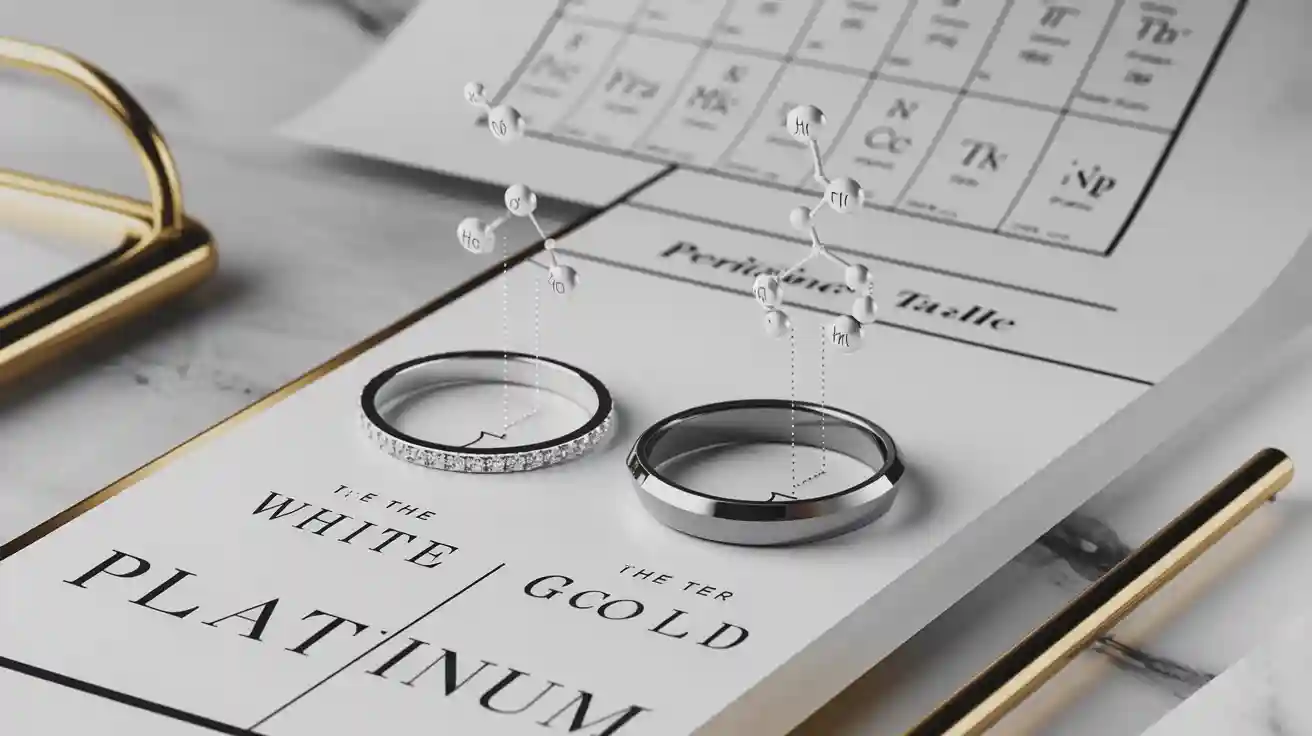
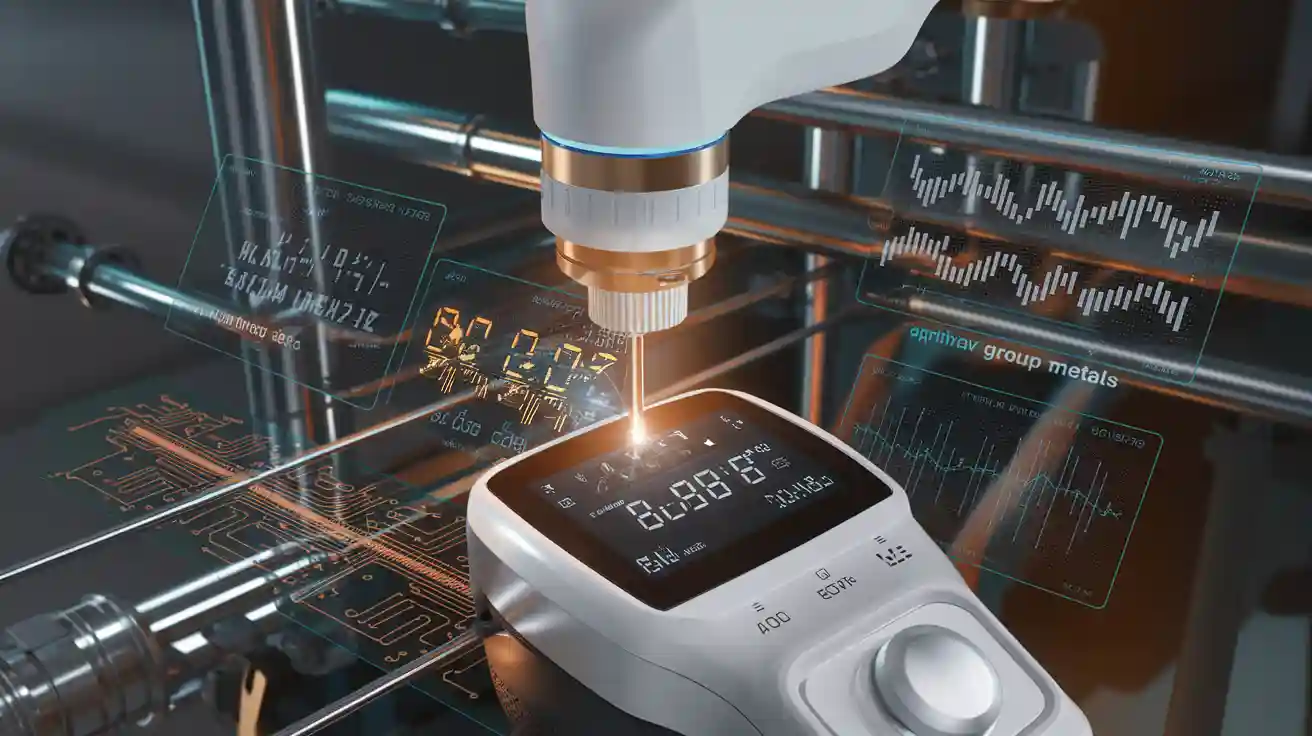
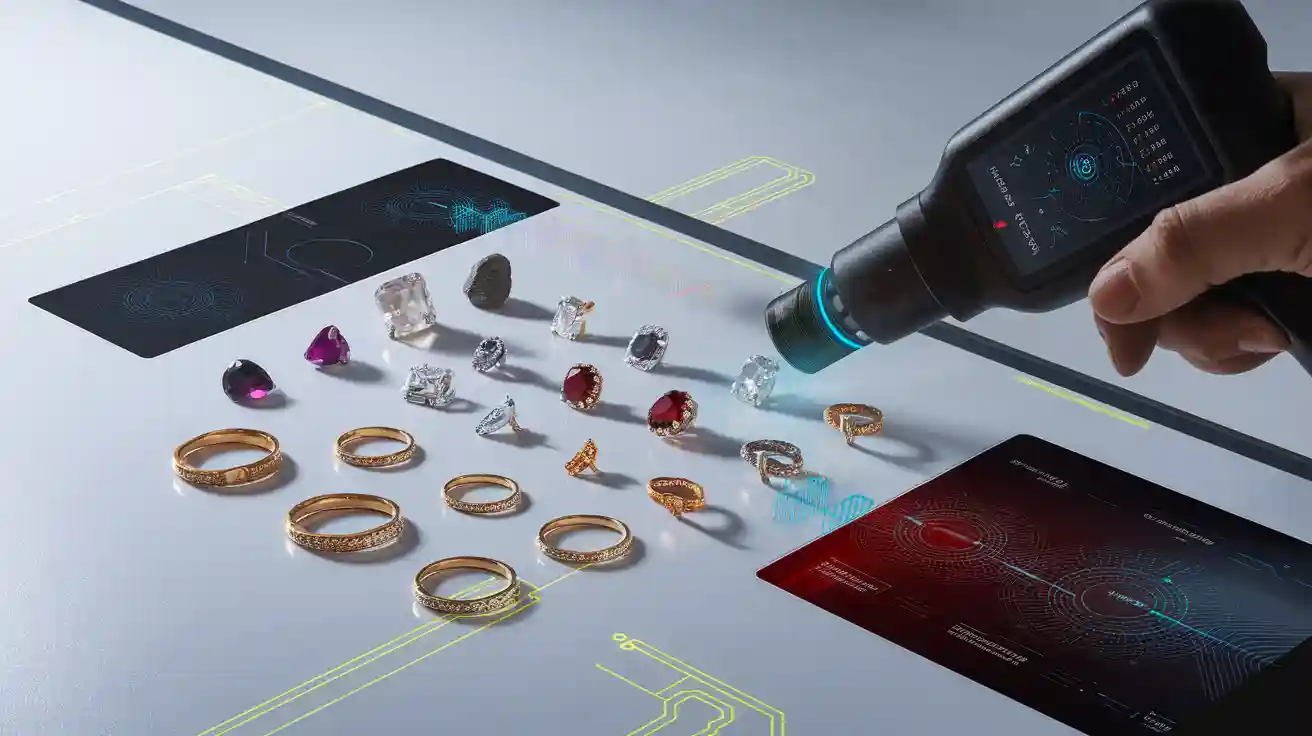

WhatsApp
Scannen Sie den QR-Code, um einen WhatsApp-Chat mit uns zu starten.